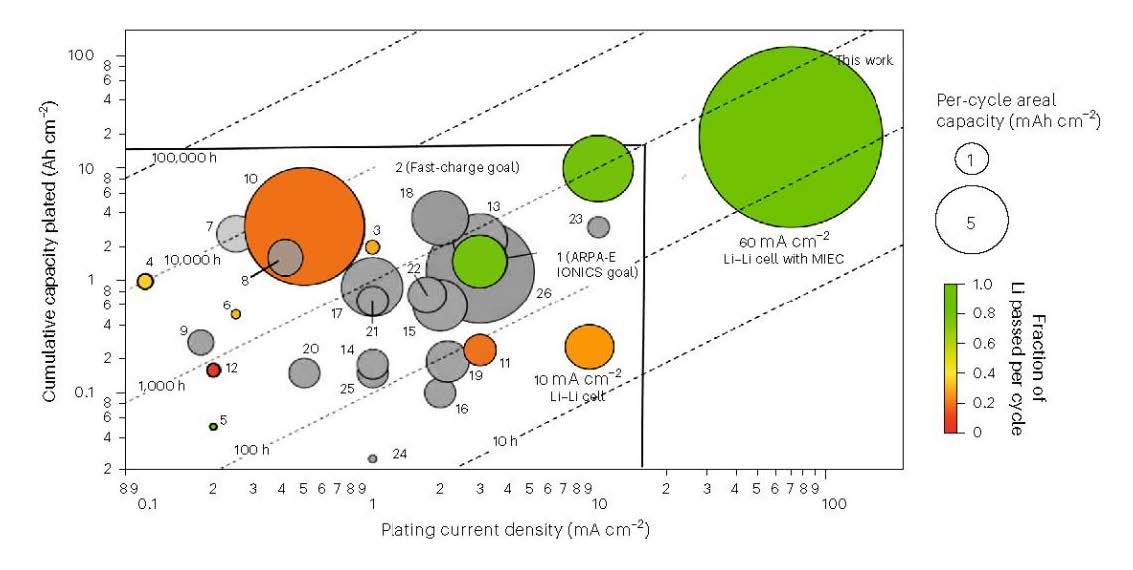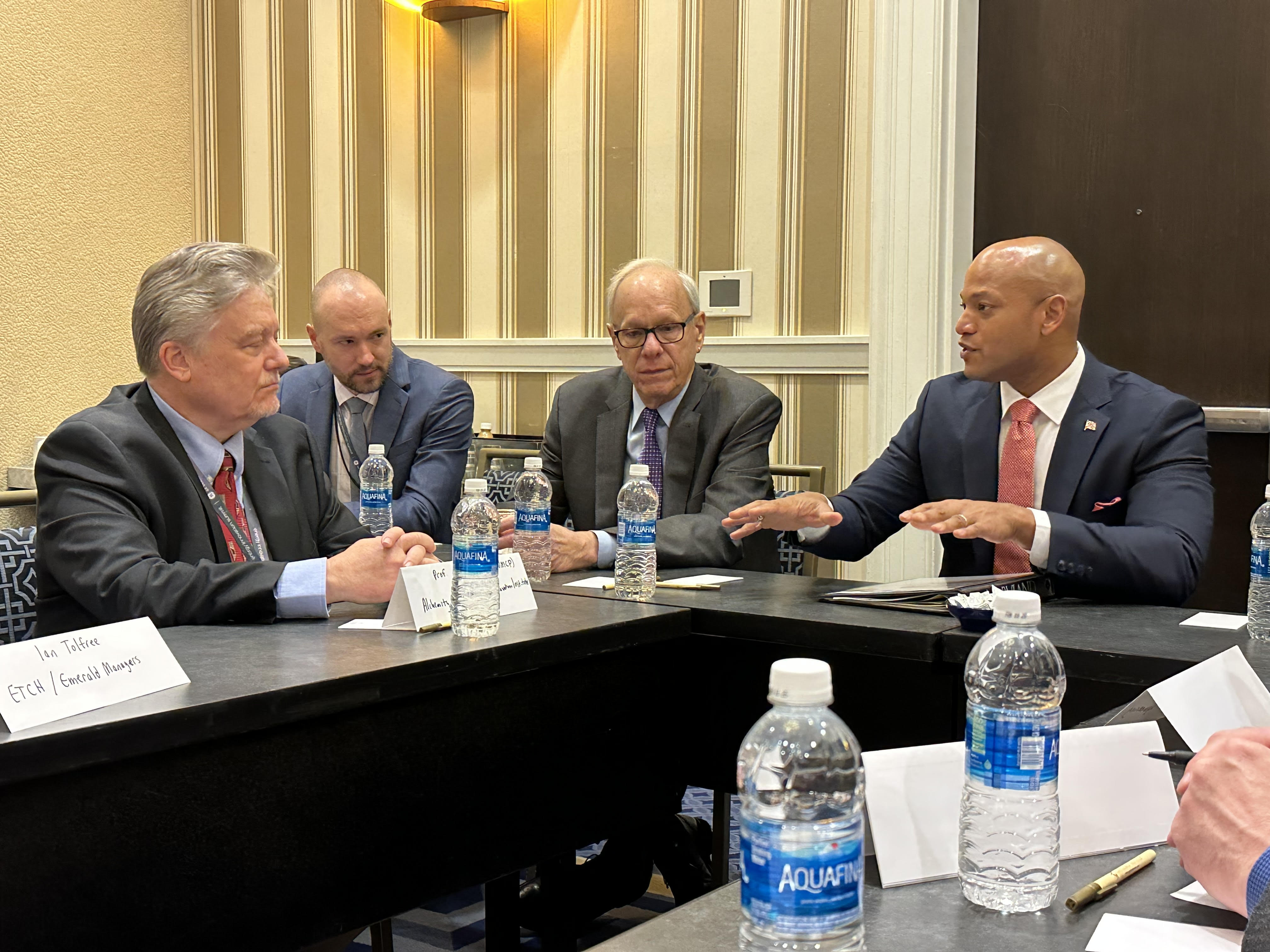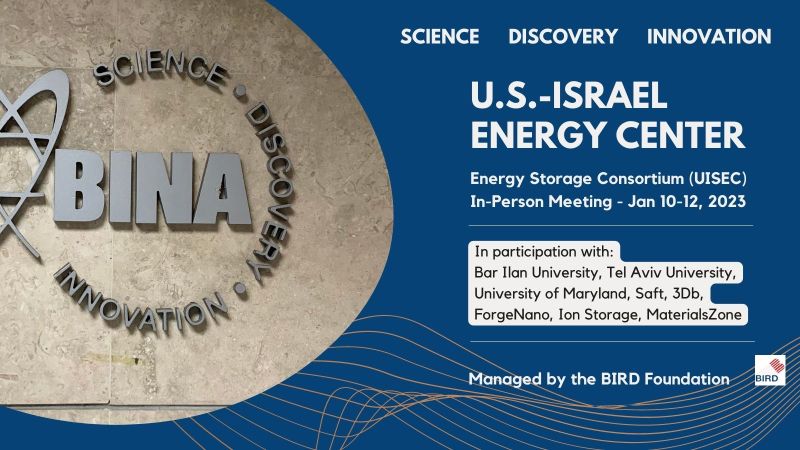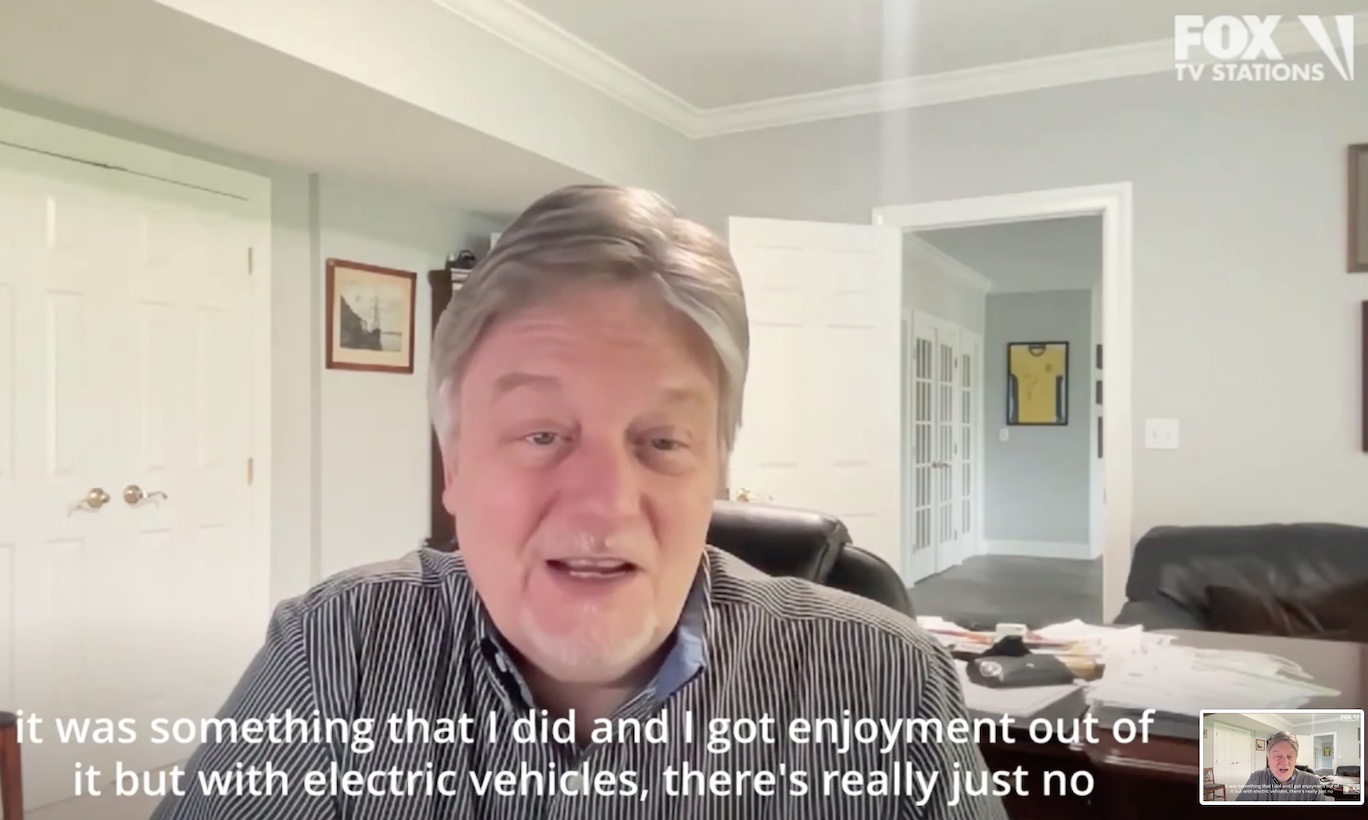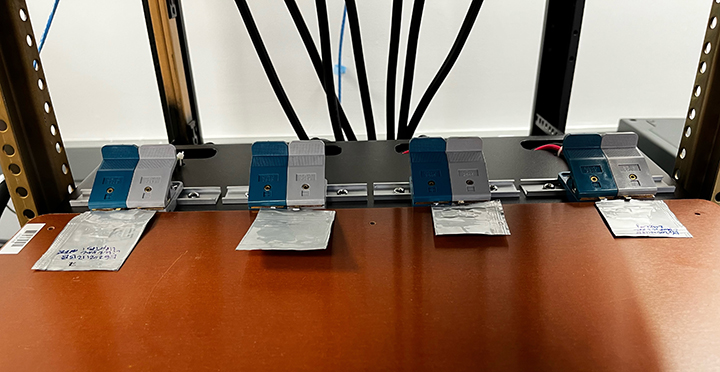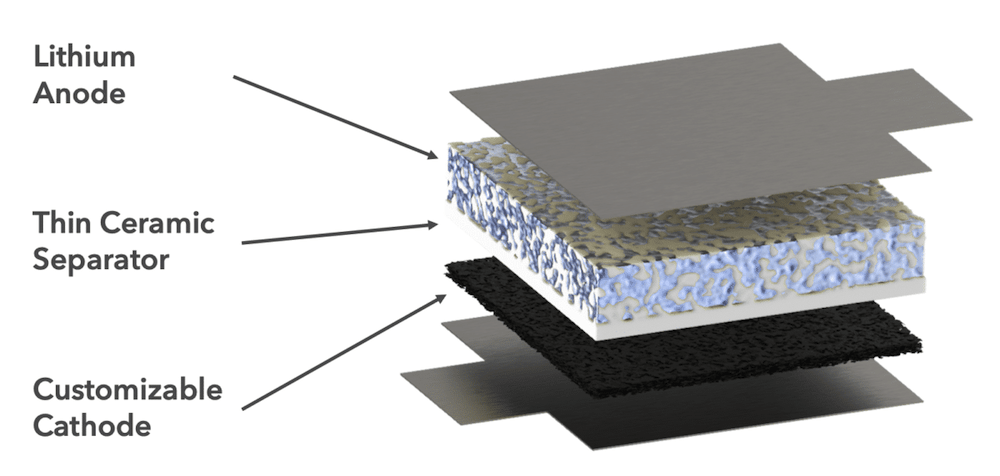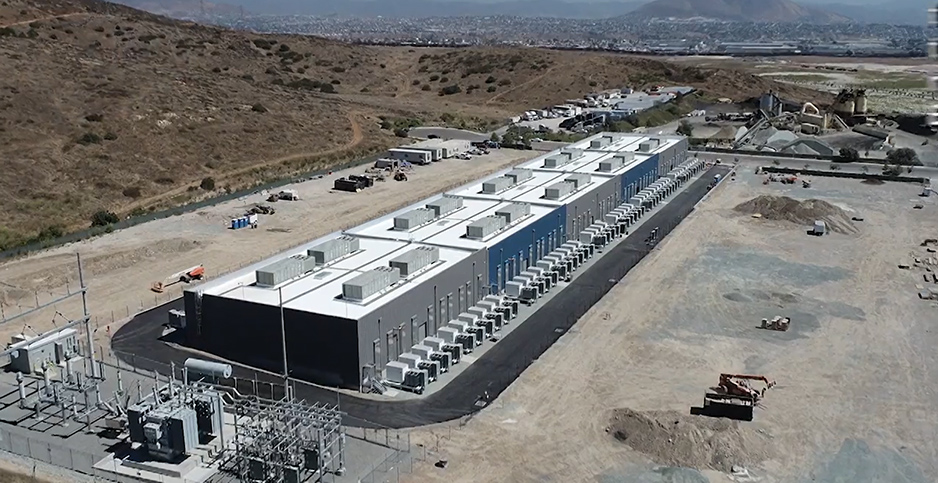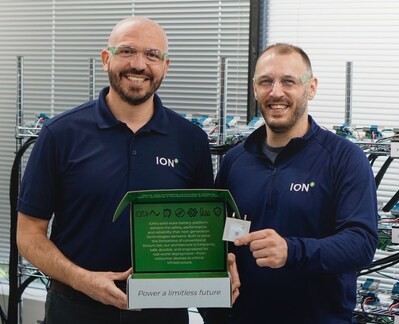News Story
Rethinking the Architecture of Solid-State Batteries: ION Closes $30M Investment Round
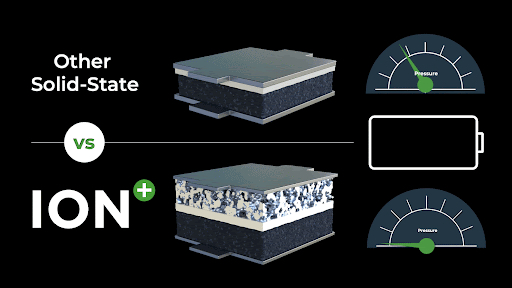
Ion Storage Systems, Inc. (ION) announced the closing of its Series A funding round, exceeding its original target of $30 million. The company welcomed investments from Toyota Ventures, Tenaska, Bangchak Corporation and other investors, in addition to the investments from its lead investors. (View Toyota's full press release: “Rethinking the Architecture of Solid-State Batteries: Our Investment in Ion Storage Systems”)
Founded in 2015, ION has developed a groundbreaking 3D ceramic electrolyte architecture that addresses the key issues hindering the growth of solid-state batteries — namely durability and the ability to manufacture at scale. Spun out of the University of Maryland’s Energy Innovation Institute, ION’s core technology is the brainchild of executive chairman Dr. Eric Wachsman, who founded the company along with chief technology officer Dr. Greg Hitz. The pair’s expertise in solid-state batteries and manufacturing, combined with CEO Ricky Hanna’s 20+ years of experience in batteries from Apple and Valence Technologies, has enabled the team to meet and exceed performance metrics for ION’s next-generation batteries.
"We are thrilled to add this exceptional group of investors and partners to our oversubscribed round to support ION's next phase of growth," said Ricky Hanna, ION's Chief Executive Officer. "As ION prepares to meet the overwhelming demand for safe, cost efficient and energy dense batteries, our team has grown to meet the challenge. ION's battery performance and safety far exceeds what traditional Lithium Ion can offer and will become the benchmark for battery design for decades to come."
To fully understand the innovative nature of ION’s technology, it is important to acknowledge the challenges that have impacted other solid-state efforts to date. More specifically, the biggest hurdles for solid-state lie primarily in the need for compression to achieve optimal charging conditions, expansion and contraction of the cell during cycling, and the formation of dendrites at high currents. Solid-state batteries with planar ceramic electrolytes require high pressure to maintain contact between the lithium metal anode and the cathode which complicates battery pack integration. Second, stripping lithium metal from the anode during discharge often creates voids, which in turn can result in the formation of dendrites or spiky lithium structures that accumulate on the anode during the charge and short-circuit batteries, posing a serious safety hazard.
That is where ION’s unique structure comes into play. ION has unlocked the power of solid-state batteries through a novel bi-layer cell design composed of two solid-state layers. The cathode is one layer while the anode and the electrolyte are integrated and consist of a dense ceramic electrolyte separator that is connected to a porous ceramic electrolyte scaffold. The porous scaffold acts as a “sponge,” creating uniform and continuous pathways for lithium metal plating without external volume change, while the dense layer acts as a solid-state separator blocking lithium metal dendrites — thereby avoiding the need for compression and preventing short circuits. Additionally, the architecture allows ION to easily seal the anode (necessary to prevent the catholyte from migrating to the anode layer around the edges), which in turn makes it compatible with a wide range of existing and next-generation cathode chemistries.
"ION's bi-layer cell design is a breakthrough for the industry...We believe this is a game changing technology and are proud to support ION's expert team as they work to unlock the potential and power of solid-state batteries."
Lisa Coca, Climate Fund partner for Toyota Ventures
"ION's bi-layer cell design is a breakthrough for the industry," said Lisa Coca, Climate Fund partner for Toyota Ventures. "The architecture addresses the technological barriers that have historically plagued solid state batteries, and it enables critical next-generation performance metrics for widespread adoption – including high-energy density, strong cycling performance, wide temperature range, and fast charging. We believe this is a game changing technology and are proud to support ION's expert team as they work to unlock the potential and power of solid-state batteries."
By focusing on the design of the anode/electrolyte structure, ION has been able to meet next-generation performance metrics, including high-energy density, strong cycling performance, wide temperature range, and fast charging. The manufacturability of ION’s technology also sets the company apart as it largely borrows from existing lithium-ion manufacturing processes or already-scaled ceramic processing.
ION’s first commercial application is wearable batteries, with plans for the company’s second target market to focus on consumer electronics. With those two beachhead markets underway, ION will be well-positioned for deployments in the battery market for EVs.
The investment will enable ION to expand its facility at its Beltsville, MD headquarters to commission and qualify a battery cell manufacturing line capable of producing 10MWh/yr of next-generation solid-state batteries. Production will initially be allocated to qualifying commercial cells for its first market customers, generating commercial revenue by the end of 2023. The Series A round will also accelerate the development projects ION has with multiple customers and partners in the consumer electronics, automotive, and stationary storage markets. Other investors in the round include GAINTECH Capital, Alumni Ventures Group, Z2Sixty Ventures, Climate Capital, and the University of Maryland Discovery Fund.
Toyota Ventures is a San Francisco Bay Area-based venture capital firm that invests in early-stage startups from around the world. Founded in July 2017, its mission is to discover what's next for Toyota by helping startups bring disruptive technologies and business models to market quickly. With more than $500 million in assets under management, the firm's funds include the Toyota Ventures Frontier Fund focused on artificial intelligence, cloud computing, autonomy, mobility, robotics, smart cities, digital health, financial technologies, materials, and energy; and the Toyota Ventures Climate Fund focused on innovative solutions for carbon neutrality. For more information about Toyota Ventures and its portfolio companies, please visit www.toyota.ventures.
Published June 7, 2022
